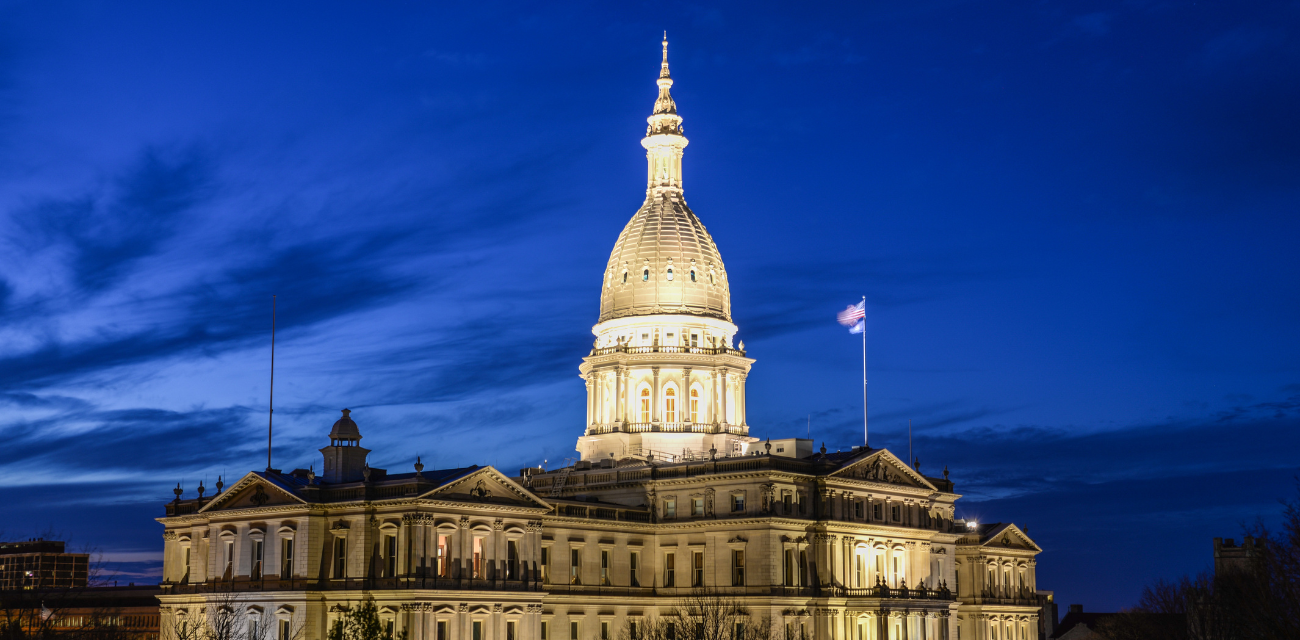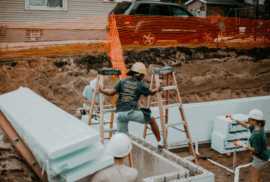This environmental investment is among the largest in decades

Authored by

Beau Brockett Jr.
Connect With the Experts

Charlotte Jameson

Megan Tinsley
This is big. Like, really big.
It’s not often we get to celebrate a truly good environmental win. Sometimes good legislation is dead on arrival. Sometimes it stalls out as a new guard of politicians arrives. And sometimes good policy is paired with the ambivalent or bad.
But on March 30, Gov. Whitmer signed into law $2.5 billion in funding to better water, parks and communities, and it’s almost wholly good news. It stems from earlier proposals by Gov. Whitmer and Republican Sen. Jon Bumstead, and it’s supported by leadership from both political parties.
It’s part of a larger $5 billion supplemental called the Building Michigan Together Plan.
It feels great. Securing funding for environmental improvements has been a prime mover of the Michigan Environmental Council since our founding in 1980, and we advocated for much of this current funding.
Much more importantly, it feels great because this particular investment will make people safer and places stronger.
 “The Building Michigan Together Plan is among Michigan’s best and largest environmental investments in decades,” said Charlotte Jameson, chief policy officer. “It directs resources to critical needs like removing lead service lines, fixing failing septic systems, keeping sewage out of our lakes, restoring our state parks, and creating more affordable, attainable housing. These $2.5 billion will improve the lives of millions of Michiganders and will address some of the most pressing environmental challenges facing our state.”
“The Building Michigan Together Plan is among Michigan’s best and largest environmental investments in decades,” said Charlotte Jameson, chief policy officer. “It directs resources to critical needs like removing lead service lines, fixing failing septic systems, keeping sewage out of our lakes, restoring our state parks, and creating more affordable, attainable housing. These $2.5 billion will improve the lives of millions of Michiganders and will address some of the most pressing environmental challenges facing our state.”
Jameson said decades of disinvestment in water and our nature culminated in a bipartisan initiative to put a surplus of state funds, much of it coming from federal COVID dollars, toward protecting people and places.
These investments are proactive. Imagine you’re hunched over your bathroom sink, plunger in hand and expletives on your tongue. It’s the third time in a year your sink’s been clogged with a buildup of gunk. You’re getting tired of sticking your hand in slimy places and sprinkling your vanity with smelly suds.
You’re thinking it’s just about time to ditch your efforts and just buy some new plumping, one that will make natural buildups far less likely for far longer. And so you do.

That’s what this $2.5 billion investment will do. It will lessen the blows of climate change, stop pollution before it starts and preserve nature before it’s developed. It fixes your metaphorical sink before you waterlog your tiled floor.
“These are the investments that Michiganders need and deserve,” said Megan Tinsley, water policy director for the Environmental Council. “The budget surplus that led to this funding is unprecedented, but the challenges we face each day with our aging water infrastructure and clean water access are not. It’s encouraging to see our lawmakers recognize this, and to watch these dollars get put to work on projects that will make a lasting impact on peoples’ lives.”
INVESTMENTS BY THE NUMBERS
While communities would not receive an equal investment of the budget proposal’s funds, hypotheticals have been given to put the numbers into perspective.
Water management: $712 million
Hypothetical equivalent: $400,000 per community
Includes funding for wastewater, stormwater and septic improvements and water pollution prevention. This will reduce flooding and make water cleaner.
Clean drinking water: Over $1 billion
Hypothetical equivalent: $564,000 per community
Includes funding for lead service line replacements, pollution prevention and groundwater mapping. Also includes specific investments to reduce lead poisoning in Benton Harbor, reduce PFAS pollution in Oscoda.
Healthy housing: $150 million
Hypothetical equivalent: $84,600 per community
Includes funding for housing, community development and clean energy upgrades for residents. This will make homes more affordable while lowering greenhouse gas emissions.
Parks: $450 million
Hypothetical equivalent: $254,000 per community
Includes funding to eliminate the state park maintenance backlog and to expand local parks. This will protect more Michigan nature and ensure it’s found in more communities.
Greener transportation: $158 million
Hypothetical equivalent: $89,000 per community
Includes funding for public transit, electric vehicles and non-vehicular transportation infrastructure. This will help residents get to where they need and lower greenhouse gas emissions.
Discover
Power environmental change today.
Your gift to the Michigan Environmental Council is a powerful investment in the air we breathe, our water and the places we love.
Sign up for environmental news & stories.
"*" indicates required fields




